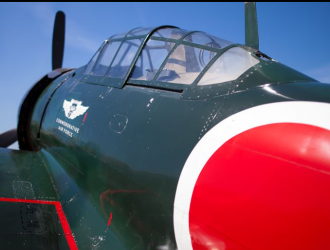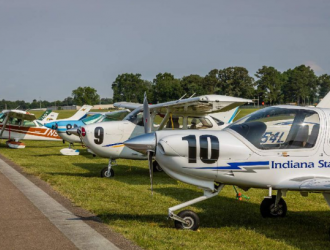The Air Race Classic (ARC) launches its 43rd annual cross-country air race this week, with 113 women pilots on 51 teams registered for the event. Of these, all hope to take off and fly past the starting line on Tuesday, June 18, at 9 am, at McKellar-Skipes Regional Airport, in Jackson, Tennessee.
Along the northerly route featured in 2019, the racers will depart Jackson to pass through LaGrange, Georgia; Hattiesburg, Mississippi; Bryant, Arkansas; Lee’s Summit, Missouri; Fairmont, Minnesota; Wausau, Wisconsin; Sault Ste. Marie, ontario (with a flyby at Sault Ste. Marie, Michigan); North Bay, Ontario; and Brantford, Ontario—before crossing the finish line in Welland, Ontario.
The race stops and terminus in Canada make this a unique version of the historic race that has its roots in the original Women’s Air Derby, which debuted in 1928. To celebrate, this year’s ARC marks 90 years of women's air racing in the United States.

Weather’s always a top concern for racers, and the 2019 start promises to be challenging, with a window of VFR conditions expected in the morning, but low ceilings predicted to follow. The rules specify that the race must be conducted solely under VFR, so the pilots won’t depart until those conditions exist at the first two stations on the course (Jackson and LaGrange airports).
Every ARC team must have at least two pilots on board, each with a minimum of a private pilot certificate—with one possessing an instrument rating or at least 500 hours. Any third teammate flying along must be at least a student pilot as well. The handicapped race pits the teams against their own best time, creating an evenly matched competition between the speedier and the more ponderous airplanes.
Fifteen university or college teams have joined the event, with racers from 32 states—and one province of Canada. The ARC has taken on a cachet amongst the college teams, who find it a great way to increase their skill while classes aren’t in session over the summer.
Over the course of three days, the teams will form strategies based on the winds and weather and aircraft performance, and pace themselves according to when and wher they might find the most favorable conditions. Because of the handicapped nature of the race, the last team to finish may well come in first place.



